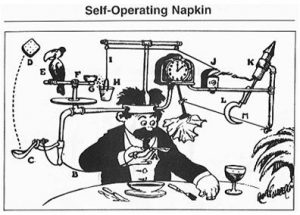
“Constructivism, Yes! Constitutivism, No! (at least for serious naturalists)”
By Jack Woods (University of Leeds, Philosophy)
Date: Tuesday 5th December, 2017
Time: 1640-1800
Place: H-232
Abstract:
Many contemporary naturalistic pictures of normativity struggle with extensional adequacy. If we tie our reasons to our psychological states, practices, values, or the like, as any serious naturalist should, then we face the problem that our actual psychologies, practices, and values are radically disordered and incomplete. We are limited creatures, after all, and we make many mistakes. We thus need to augment these pictures with ways of ironing out the wrinkles and stretching them to cover all the applicable situations.
Both constructivism and constitutivism offer tempting ways of doing this. The former explains our reasons in terms of acceptable procedures—deliberation, refinement, etc—for ironing out the basic materials we start with. For example, views which start with our values and go on to look at what we’d accept under a process of bringing these into nice accord with each other are constructivist. Constitutivism looks to see what reasons and principles are required by the facts about what we are—agents, rational beings, actors—and uses these to augment what we actually care about, value, or do. Both strategies, and especially their combination, look to solve various problems about the extensional adequacy of contemporary naturalistic views. Unfortunately, it seems to me that both moves, and especially their combination, inevitably come into conflict with the intuitions which motivated these naturalistic pictures of normativity in the first place. In particular, justifying instrumental and theoretical rationality this way requires that we posit either mysterious normativity or psychological unreality.
My aim here is to sketch how we can and why we should lean back on constructivism to flesh out naturalistic accounts of reasons, then to show that using constitutivism to avoid problems for constructivism runs into serious problems. I then propose a way of doing much of the work constitutivist pictures are supposed to do, for a hybrid conventionalist-humean picture, without running into the serious problems which arise for constitutivism. The key idea is to view instrumental and theoretical rationality as just yet more standards which we have independent reason to conform to.
